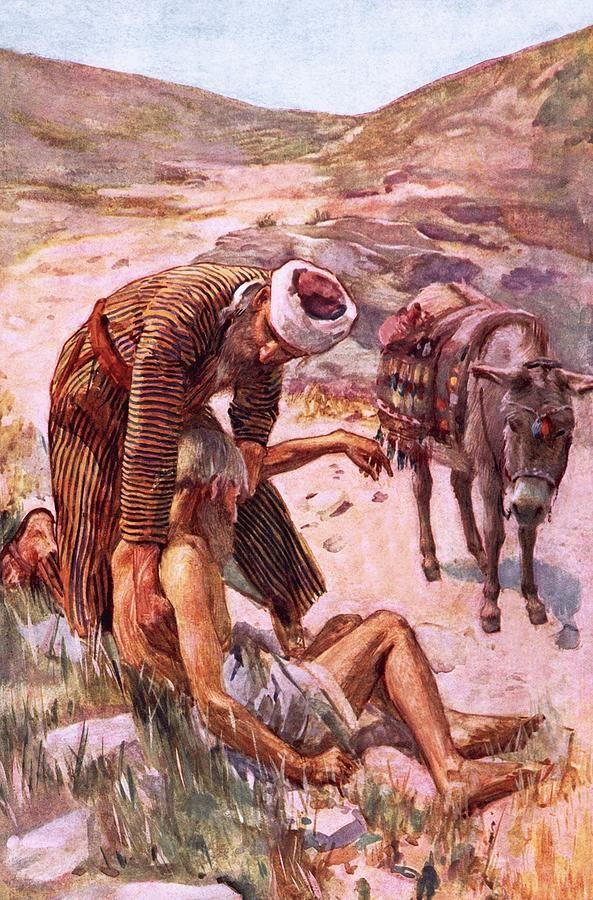The House on the Rock
Matthew 7:24–27 (see also Luke 16:46–49)
Therefore everyone who hears these words of Mine, and does them, I will liken him to a prudent man, who built his house on the rock. And the rain descended, and the rivers came, and the winds blew, and they fell upon that house; and it did not fall, for it was founded on the rock.
And everyone who hears these words of Mine, and does them not, shall be likened to a foolish man, who built his house on the sand. And the rain descended, and the rivers came, and the winds blew, and beat upon that house, and it fell, and the fall of it was great.
The prudent and the foolish
AC 44. It is the office of the understanding to hear the Word, and the office of the will to do it. To hear the Word and not to do it, is like saying that we believe when we do not live according to our belief. In that case we separate hearing and doing, and thus have a divided mind, and become of those whom the Lord calls “foolish” in [the parable above].
AC 9239. Men speak of believing in God, and of believing those things which are from God. Believing in God is the faith that saves. But believing the things which are from God is a faith which without the former faith does not save. For believing in God is knowing and doing; whereas believing the things which are from God is knowing and not yet doing. Those who are truly Christians both know and do, thus they believe in God. But those who are not truly Christians know, and do not do. These are called by the Lord “foolish,” but the former are called “prudent” (Matt. 7:24, 26).
The importance of deeds
DP 128. Everyone knows from the Word that the life allotted to each after death is according to his deeds. If you open the Word and read it, you will see this clearly; but while doing so take the thoughts away from faith and justification by faith alone.
The few passages that follow testify that the Lord teaches this everywhere in His Word:
Every tree that does not bring forth good fruit is hewn down and cast into the fire. Therefore by their fruits you shall know them (Matt. 7:19, 20).
Many will say to me in that day, Lord... have we not prophesied in Thy name ... and in Thy name have done many wonderful works? And then I will profess to them, I never knew you; depart from me, you that work iniquity (Matt. 7:22, 23)....
[The parable above is also quoted.]
TCR 375. Charity and faith are only mental and perishable things, unless they are determined to works and coexist in them when possible. Does not a man have a head and a body which are joined together by a neck? And in the head is there not a mind that wills and thinks, and in the body is there not power that performs and executes? Therefore, if man merely wills well, or thinks from charity, and does not do good and thus perform uses, is he not like a head only, and thus like a mind only, which apart from a body cannot continue to exist? From this is not anyone able to see that charity and faith are not charity and faith so long as they are merely in the head and its mind but not in the body?
For they are then like birds flying in the air without any resting-place on the earth, or like birds ready to lay, but having no nests, in which case they would drop their eggs in the air or upon the branch of some tree, and the eggs would fall to the ground and be destroyed.
There can be nothing in the mind that does not have some correspondent in the body, and its correspondent may be called its embodiment. So when charity and faith occupy the mind only, they have no embodiment in the man, and may be likened to those aerial beings called specters, like Fame as painted by the ancients with a laurel about her head and a horn in her hand. Being such specters, and still being able to think, they cannot help being disturbed by fantasies, which are caused by reasonings from various kinds of sophistry, almost as reeds in marshes are shaken by the wind, while beneath them shells lie at the bottom and frogs croak on the surface.
Who cannot see that such things come to pass when men merely know from the Word some things about charity and faith, but do not practice them? [The parable of the House on the Rock is then quoted].
Questions and Comments
- AC 44 defines what it means to be foolish spiritually. Does the parable of the House on the Rock help explain why it is foolish to hear the Word and not do it? Does what happens in the literal sense of this parable help us see what will happen spiritually when we are foolish?
- AC 9239 says “believing in God is knowing and doing.” How does “doing” relate to believing in God?
- TCR 375 provides several analogies to help us understand what faith and charity are like when uses are not performed. What do you think of these analogies? Are they helpful? Confusing? Some more helpful than others?
| previous |  |
|---|


